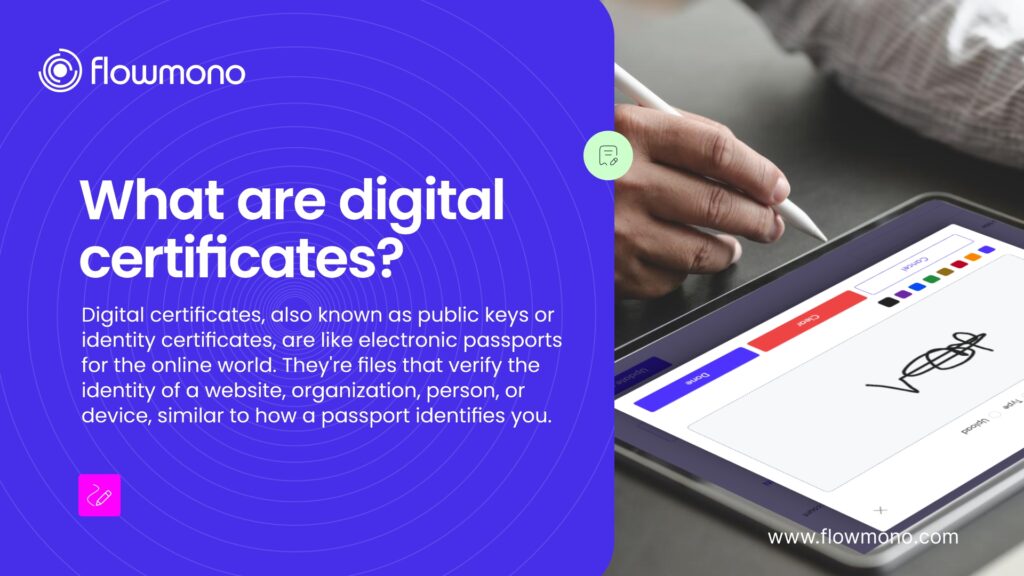
In the age of digital dominance, paper trails are fading, and online transactions reign supreme. Yet, a crucial element of trust and authenticity remains firmly rooted: the signature. But in this digital realm, signatures take on a new form – the digital signature, accompanied by its trusted guardian, the certificate. Understanding these tools unlocks the secure and efficient workflows powering modern business and communication.
What are Digital Signatures?
Imagine an invisible, cryptographic fingerprint applied to your digital document. That’s what a digital signature is. It’s a unique electronic code generated using private and public key encryption that binds a person or entity to a specific piece of data. This bond ensures the data’s authenticity and integrity, guaranteeing it hasn’t been tampered with since signing.
Think of it as a tamper-proof seal, and breaking the seal invalidates the signature, alerting you to potential alterations. This makes digital signatures ideal for protecting vital documents like contracts, agreements, and financial transactions.
What are Digital Certificates?
Imagine a trusted authority verifying your identity and vouching for the authenticity of your digital signature. That’s where certificates come in. Issued by trusted third-party entities known as Certificate Authorities (CAs), certificates act like digital passports. They contain your identity information, public key, and the CA’s validation, confirming your legitimacy to sign documents electronically.

Digital certificates, also known as public keys or identity certificates, are like electronic passports for the online world. They’re files that verify the identity of a website, organization, person, or device, similar to how a passport identifies you.)
Think of it as a digital ID card – It ensures the person signing is who they claim to be, adding another layer of trust and security to the digital signature process.
Digital Signatures in Action: Diverse Uses and Legality
Digital signatures aren’t confined to dusty contracts. They have a widening range of applications, including:
- E-commerce transactions: Secure online payments and protect both buyers and sellers.
- Software distribution: Verify software authenticity and prevent piracy.
- Healthcare records: Ensure patient data privacy and integrity.
- Legal documents: Electronically sign contracts, agreements, and court filings.
But are digital signatures legally binding? The answer is a resounding yes.
In most countries, including the US and EU, digital signatures are recognized as legally valid evidence, holding the same weight as traditional handwritten signatures. However, specific regulations and requirements may vary by jurisdiction, so consulting legal counsel is recommended for critical documents.
Challenges and Caveats: The Glitches of It
While digital signatures offer undeniable benefits, some potential drawbacks warrant consideration:
- Reliance on CAs: Certificate vulnerability could compromise the entire system.
- Technical requirements: Signing software and compatible devices are required.
- Long-term validity: Certificates expire, requiring renewal for ongoing document verification.
Despite these challenges, the security and convenience offered by digital signatures far outweigh the negatives. As technology evolves and security measures strengthen, digital signatures are poised to become the undisputed standard for authentication and trust in the digital world.
By understanding their functions, appreciating their legal standing, and acknowledging their limitations, you can embrace the power of digital signatures and certificates to navigate the evolving landscape of secure and efficient online transactions.
![]()
